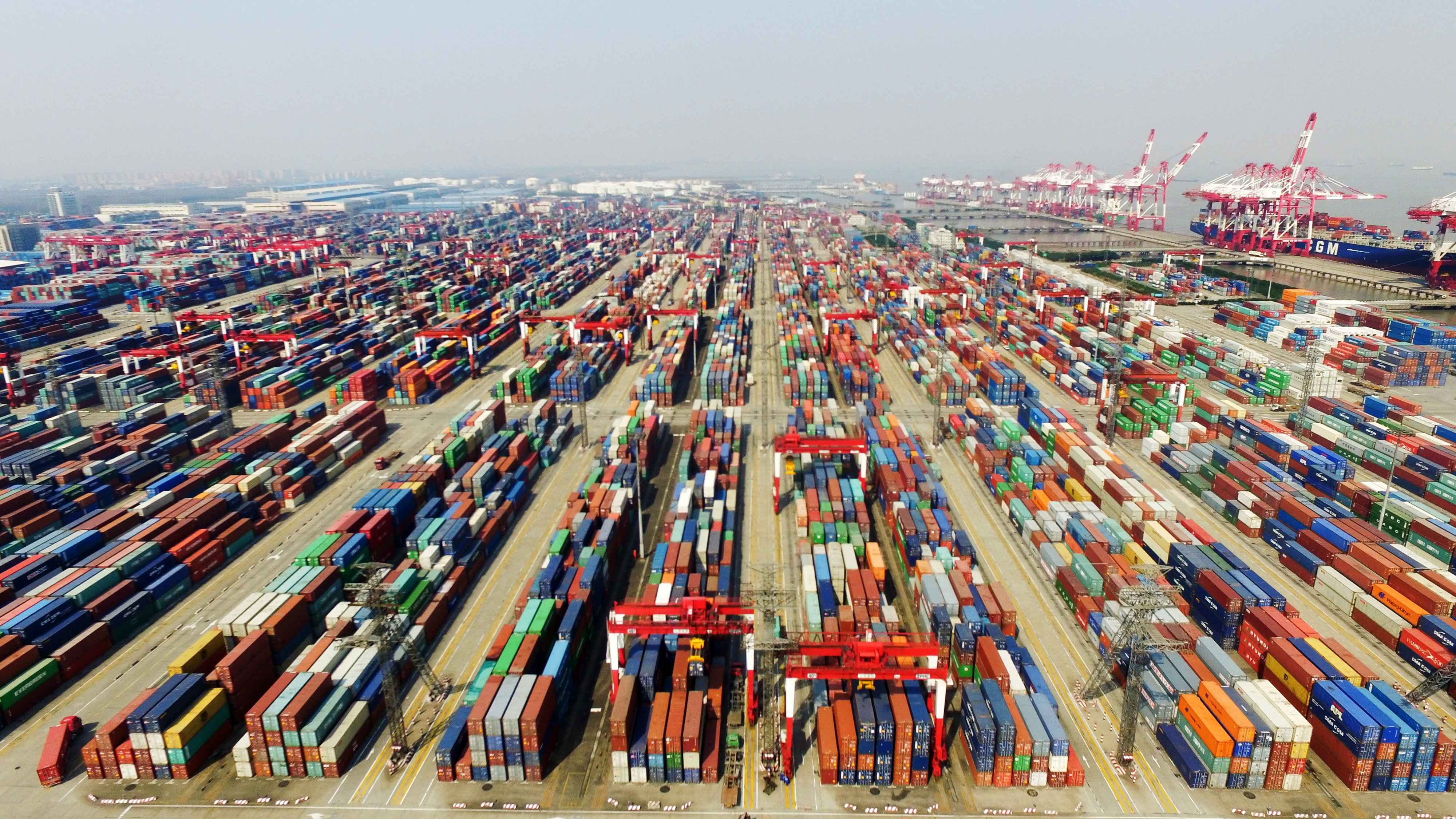China and the idea of free trade
- By Sajjad Malik
 0 Comment(s)
0 Comment(s) Print
Print E-mail China.org.cn, August 16, 2018
E-mail China.org.cn, August 16, 2018

China has become one of the most ardent supporters of free trade when this idea is facing graver threats from rising protectionism and unjustified tariffs.
The decision by the Chinese leadership to stand by the free trade will be long remembered as a bold step to strengthen a trading system that has been and remains the cornerstone of modern cooperative order.
The global trading regime has been working quite well and contributing significantly to multilateral commercial activities. Global wealth has multiplied over the decades and its benefits have been used by individual countries to bring more people out of poverty, expand mass literacy and improve healthcare.
Lately, however, the free flow of goods has come under strain, especially since the start of Donald Trump's presidency in the United States. He has adopted an unorthodox approach to deal with the trade deficit and related industrial decline threatening the traditional economic superiority of his nation.
"America First" reverberated from Washington to Brussels to Davos, where Trump challenged other countries to either change their policies according to his preferences or face unilateral tariffs or other punitive measures.
He might have been moved by a genuine desire to fix America's ailing economy by major policy changes. While there's not necessarily any harm in guarding the vital interests of his people who elected him, Trump has failed to calibrate his actions properly.
In other words, he has placed the commercial rights of others in jeopardy by resorting to policies while unilaterally trying to promote his vision of the best interests of America.
A major impact of his "my way or highway" mode of thinking has heavily impinged on the international trade regime that is based on the idea of free movement of goods. There is also a demand for the free movement of labor, but, obviously, this is not possible in near term due to the threats of huge unplanned transfer of human beings from poor places to rich ones.
When Trump dropped a hint for the first time that he might upend the current trade system, it was clear free trade would suffer. Those who feared that such a move might well undo the current trade structures found timely support from China and its leader, President Xi Jinping.
Xi spoke with conviction at Davos in 2017, saying his country would continue to support globalization no matter what America did. Several leading nations have also lent support to his vision and are standing with Xi to promote rule-based trade practices.
Amidst a looming trade war promoted by imposition of tariffs by Trump, Premier Li Keqiang has reiterated support for free trade during his meeting with the newly-elected president of the UN General Assembly, Maria Fernanda Espinosa Garces, an Ecuadorean diplomat set to assume office next month.
The two met on August 8 in Beidaihe of Qinhuangdao in Hebei province, where government and Party leaders traditionally spent some of their summer holiday time to discuss various issues of interests including global trade and economy.
Li also supported multilateralism as espoused by the UN, the free trade system, rules of the World Trade Organization, trade liberalization and investment facilitation. He also made a point about opposing the policies of protectionism.
The crux of the matter is that rule-based international political and economic order is the mainstay of peace and prosperity. No single nation – no matter how mighty – has any right to dictate terms to the rest of the world. Though, every country has a right to do what it thinks best for its people it has to behave according to global legal regime and operate within global norms.
The basic principle is that freedom and prosperity of billions of people on the globe are inseparable.
The multilateral trading system among nations is the surest way to maintain and promote healthy competition and improve the industrial output by going for innovations and cutting the cost of production. It is also vital that leading nations support liberalization and further opening up of trade.
China by adopting an open policy favoring free trade, globalization and multilateralism is actually filling the space left by the U.S. It is not surprising that Beijing is facing tariffs imposed by Trump on its exports.
Sajjad Malik is a columnist with China.org.cn. For more information please visit:
http://www.ccgp-fushun.com/opinion/SajjadMalik.htm
Opinion articles reflect the views of their authors, not necessarily those of China.org.cn.





